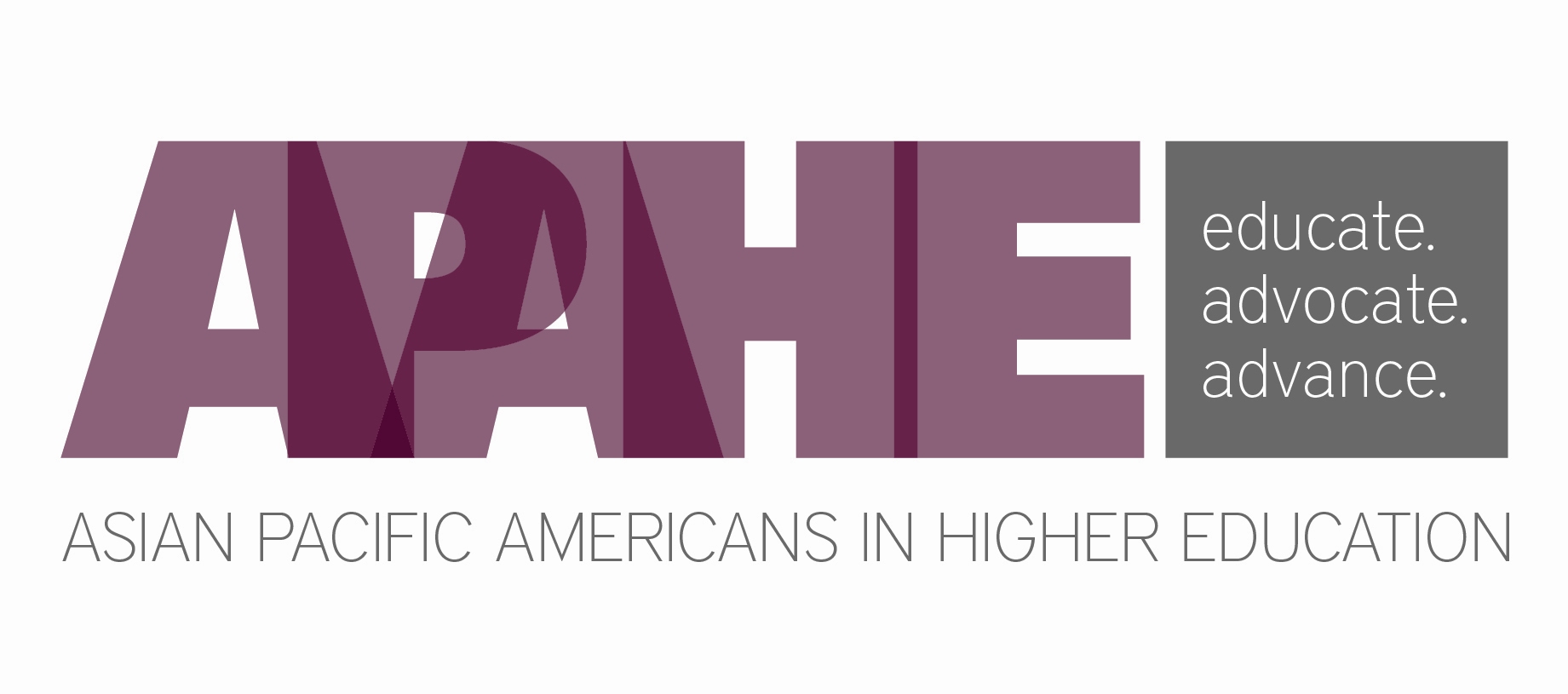Note: APAHE 2020 Conference Cancelled
APAHE 2020 Conference Proposal Submission Form
Click Here for APAHE 2020 Conference Proposal Submission Form
Deadline Extended! Sunday, December 8, 2020 at 11:59 pm PST.
Proposal Submission Deadline: Saturday, November 30, 2019 11:59 pm PST.
Notification by Wednesday, January 15, 2020.
2020 APAHE Theme
Knowledge and approaches to bridge and build communities within and across
groups
Strategies to build coalitions that will challenge the status quo fundamentally and
generate signification change in the educational and leadership landscape for APA’s
2) EQUITY, STUDENT SUCCESS & SUPPORT PROGRAMS
Information sharing on AANAPISI or other grant-funded programs (e.g., best
practices, how to develop proposals and programs, creative braiding of resources)
Exemplary programs and models that support access and success for culturally
diverse, traditionally underrepresented populations in higher education
(e.g., services to LGBT communities, Pacific Islanders)
3) ETHNIC IDENTITY, EMPOWERMENT & ADVOCACY
Celebrating our API heritage, embracing our culture in our work and empowering
others to take their place “at the table”
Programs and curricula that create more inclusive higher education
environments, improve campus racial and ethnic relations, and expand opportunities
for educational access and success for historically underrepresented groups
in higher education
4) LEADERSHIP DEVELOPMENT & CAREER ADVANCEMENT
Advancement, networking, career readiness and navigating the workplace as APIs
Constructive dialogue, interaction, understanding and action around professional
challenges or within/between constituencies (i.e. racial/ethnic groups, student affairs
and academic affairs, early and advanced professionals, students and faculty, and
institution types)
5) LEGISLATION, POLICY, & RESEARCH
Legal, political or community advocacy that tells our stories and challenges, increases
our voice and representation and protects our human rights.
Use of technology and the communication of data to support our work
The panel format is best suited for formal presentations and structured discussions. Panelists should be qualified presenters with expertise in the subject. Submission should be no more than 750 words, including title of panel, learning outcomes (implications to APIAs in higher education), and relevance to overall conference theme.
This format is best suited for discussion on a specific topic and engaging the audience in an informal setting. Workshops will have no more than ONE/TWO presenters. Submission should be no more than 300 words including title, topic or area of discussion, learning outcomes (implications to APIAs in higher education), and relevance to overall conference theme.
The poster format should be used to showcase an individual project and is best suited for informal discussion, engaging the audience for feedback and comments related to the project. Posters will have no more than ONE/TWO presenters. Submission should be no more than 300 words including title, topic or area of discussion, and relevance to overall conference theme. Poster showcase may be located in open areas adjacent to other poster presenters.
- Concise abstracts that engages the reader while providing a clear description of the objectives of the presentation
- Thoughtful connection with the conference theme and APAHE mission
- Clearly Trans-formative Potential: Extent to which the proposed presentation provides evidence of effectiveness, lessons learned, challenges overcome, and applicability across a range of institutional types.
- Explicit plans for involving participants in reflection, discussion, exercises, and other activities that will help them understand and apply the material.
- Presentation clearly focuses on addressing Target Audience selected.
- Panels and workshops – please list speakers who can provide rich insights to the topic
- Consideration of theoretical framework strongly encouraged but not required
- Only COMPLETE submissions will be reviewed.

